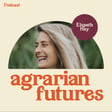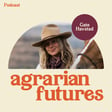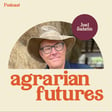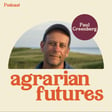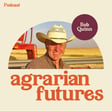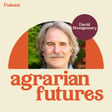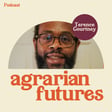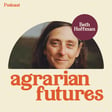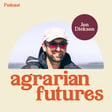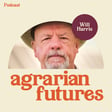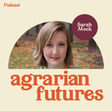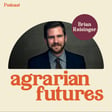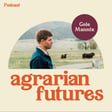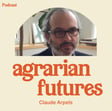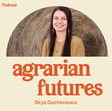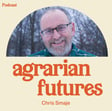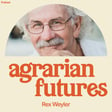
Building Rural Resiliency and Food Justice with Mark Watson
Today’s guest is proving that financial models can prioritize the well-being of farmers and the resilience of our food systems—not just financial returns. Mark Watson, president and chief investment officer of Potlikker Capital, leads a fund dedicated to supporting BIPOC farmers in the U.S. who operate at the intersection of racial and climate justice.
Drawing from his extensive background in conventional finance, Mark sheds light on why our current economic systems fail small farmers—and how Potlikker is pioneering a blended approach to overcome these challenges.
How can rural BIPOC farmers thrive in an industrialized, consolidated food system? Mark is helping to chart the path forward.
In this episode, we cover:
- Mark’s journey from traditional finance to seeing the need for a new kind of financing for rural BIPOC farmers.
- Potlikker Capital’s strategy for building a networked, resilient food system with an emphasis on supporting farmers of color.
- The revolutionary power of de-centering financial returns from the investment process.
- How they’ve structured their organization to invest wisely.
- How to engage the broader investment community in food and racial justice work.
- And much more...
More about Mark and Potlikker Capital:
Mark Watson is the President and Chief Investment Officer of Potlikker Capital. Previously, his impactful tenure as Managing Director of the Fair Food Fund mobilized catalytic capital to enhance community access to healthy food and promote local ownership in food production and distribution, always with a focus on social equity.
In addition, Mark founded Keel Asset Management LLC, a pioneering financial advisory firm dedicated to providing socially responsible investment solutions to nonprofits and public and corporate pension plans. His career began in commercial banking at the First National Bank of Chicago (now JP Morgan Chase), where he amassed over 30 years of experience managing investment portfolios for foundations, endowments, and institutional pension funds.
Notably, Mark co-designed and launched the Boston Impact Initiative Fund, an integrated racial justice capital fund that successfully deployed capital to over 30 small businesses. He continues to contribute his expertise as an investment committee member for the Fund.
He serves as an advisory board member of MIT/Health Innovation Systems Inc., Director of Transition at The Institute of Educational Leadership, board president of Sustainable Cape, Inc., and was previously a board member of the Social Venture Network.
Agrarian Futures is produced by Alexandre Miller, who also wrote our theme song. This episode was edited by Drew O’Doherty.
